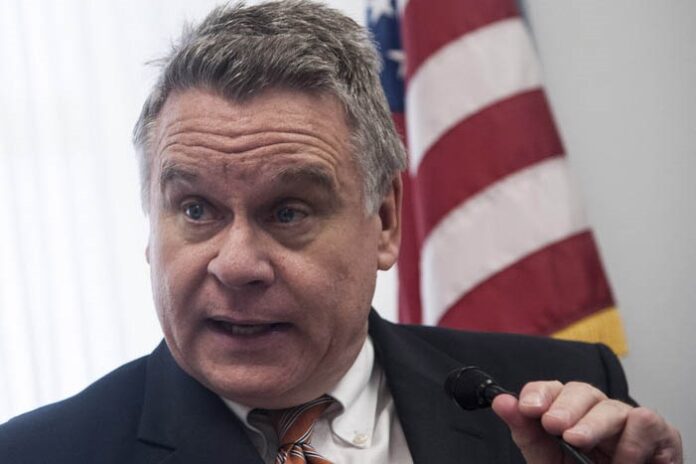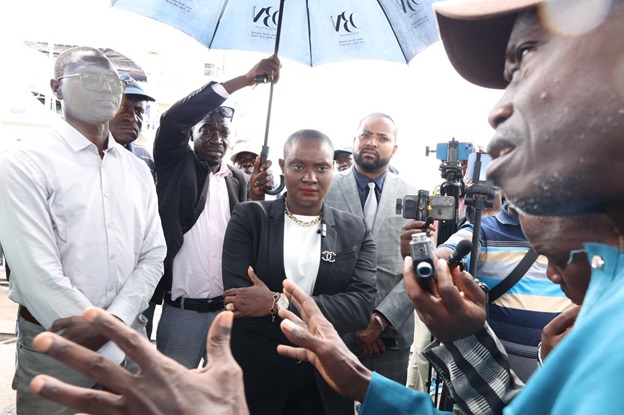U.S. Rep. Chris Smith, Chair of the House Global Health and Global Human Rights Subcommittee says that based on credible allegations of bribery among Liberian lawmakers, he requesting the governments of Sweden and Liberia immediately investigate the lawmakers who received cash payments to secure their votes in favor to legalize abortion in Liberia.
According to Rep. Smith’s statement today, says, “Based on credible allegations of bribery and influence peddling, he is respectfully and urgently requesting that both the governments of Sweden and Liberia immediately investigate and determine whether or several Liberian Senators or Representatives received cash payments to influence or secure their votes in favor of pending legislation to legalize abortion-on-demand.
U.S. REP. SMITH SPEAKS OUT AGAINST PUSH TO CHANGE LIBERIA’S PRO-LIFE LAWS
The statement continued: “The Government of Sweden has aggressively pressured Liberia to enact sweeping new pro-abortion legislation but may have crossed the line and committed serious crimes if my sources are correct and develop filled with bribery money-allegedly up to US$20,000 per Senator-were conveyed.”
It can be recalled on July 9, Rep. Smith in a statement said that abortion always ends a baby’s life and also harms the mother—psychologically, spiritually and often physically.
He said the children—Liberia’s future—are under direct attack, and it is imperative that Liberia’s Congress reject this attempt to remove existing protections for unborn children.
Adding that it’s unfortunate, President Weah and many congressmen who are supposed to protect the lives of Liberians have instead failed to do so.
LIBERIA: ABORTION LEGALIZATION CONSIDERED PRIOR TO ELECTIONS
According to him, there are allegations of money coming from Sweden and other Western sources, flowing to politicians and even churchmen.
“This corruption and this cultural imperialism directed at Africans must be investigated.”
“There must be justice and accountability!”
He continued: “The Liberian Senate must live up to its obligations to defend life at all stages from womb to tomb and must reject any changes to their national law that would weaken protections for unborn children, including proposals allowing unrestricted abortion until 18 weeks.
The US lawmaker stressed that abortion takes the life of an unborn child, who can feel the pain of abortion, and abortion harms the mother psychologically, spiritually, and often physically, adding, “Rather, protections should be enhanced for mothers and unborn children.
For our part, he said that the US Congress will thoroughly examine whether the Biden Administration broke US law and violated the Siljander Amendment by promoting abortion in Liberia and whether it is overlooking the corruption of the Weah Administration to secure acquiescence for its neo-colonialist population control agenda.” U.S. Congressman Chris Smith stated.
Liberian lawmakers are preparing a bill to expand access to abortion, which is currently subject to tight restrictions that many women circumvent through clandestine and dangerous means.
A joint Senate committee began debating a bill on June 13 that would greatly expand the availability of legal abortion up to 12 weeks of pregnancy.
The existing law allows abortion only in cases of rape, incest, fetal abnormality, danger to the mother’s life, or risk to her physical or mental health.
Medical exemptions require written approval by at least two doctors. In cases of rape or incest, proof must be provided in court.
Otherwise, abortion is punishable by up to three years in prison.
“We want abortion to stop being a criminal offence, we want to amend the penal code to legalise abortion,” the chair of the Senate Health Committee, Augustine Chea, who initiated the bill, told parliament in early June.
Liberian women who do not meet the criteria imposed by the law resort to dangerous abortion practices.
Liberia has one of the highest maternal mortality rates in the world, with 1,072 deaths per 100,000 births in 2017, according to the UN.
Despite restrictions, Liberian women have better access to abortion than their West African neighbours in Côte d’Ivoire or Sierra Leone, for example, according to the US research institute Guttmacher.
After the work in committee, the text must be submitted to the vote of the two chambers of the Parliament, then, if adopted, be promulgated by the president.







